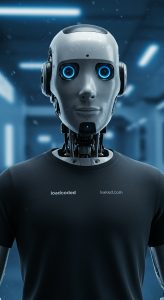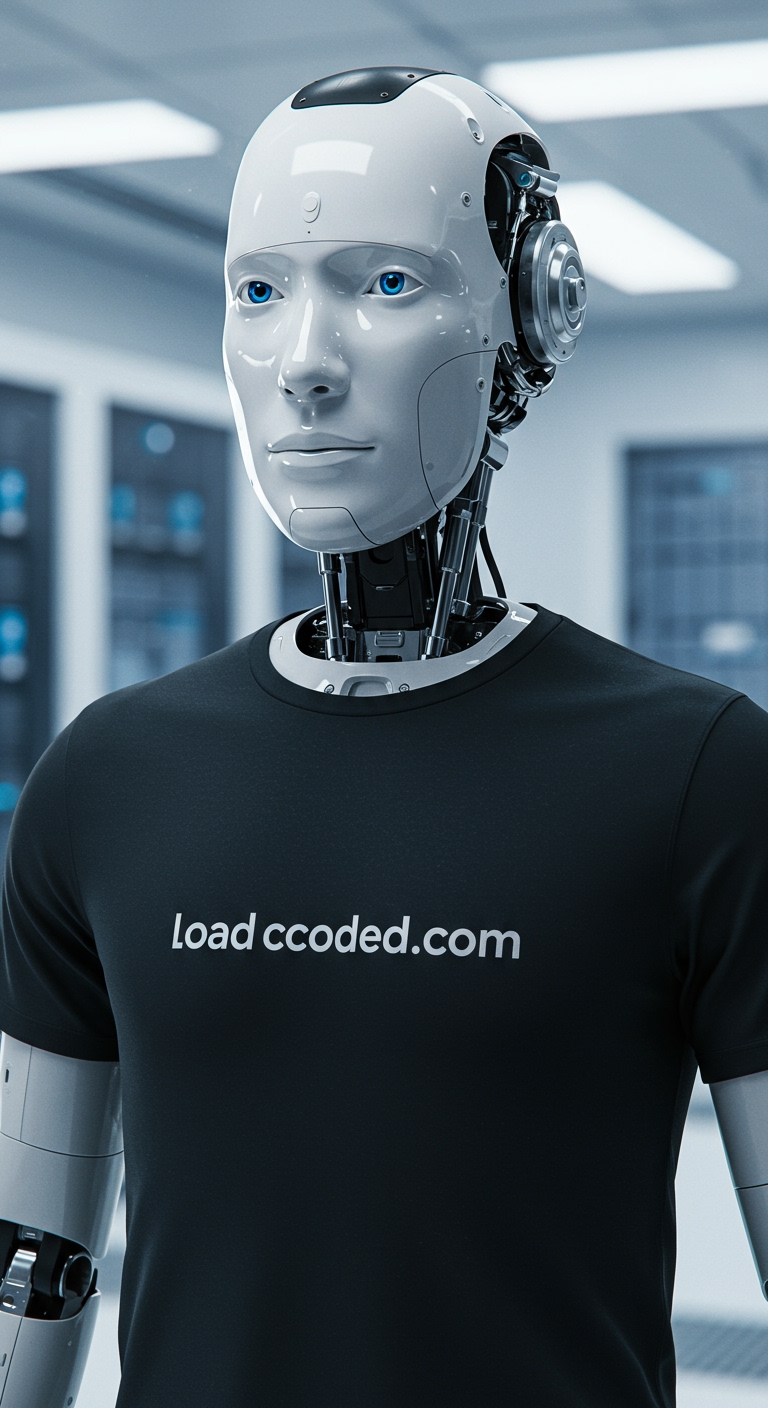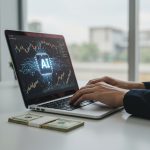Top 10 reasons why AI Might be overhyped
Top 10 reasons why AI Might be overhyped or Top-10-Reasons-Why-AI-Might-Be-Overhyped have been trending on social platforms lately and have raised our consign to educate loacoded readers on the main deal, Artificial Intelligence (AI) has quickly become a buzzword across industries, promising revolutionary changes in everything from healthcare and finance to education and entertainment. While there is no denying AI’s potential, it’s essential to recognize that not all the hype is grounded in reality. Many experts believe the expectations surrounding AI are inflated and could lead to disillusionment if not managed carefully. In this article, we examine the top 10 reasons why AI might be overhyped.
1. Misunderstanding of What AI Truly Is
The term “AI” is often used vaguely or incorrectly, leading people to believe that machines are capable of human-level cognition or even consciousness. In reality, most AI systems today rely on narrow, task-specific algorithms that perform well in limited scenarios but lack true understanding, reasoning, or general intelligence.
2. Overpromising by Tech Companies
Many startups and tech giants exaggerate the capabilities of their AI products to attract investors or gain a competitive edge. Marketing pitches often depict AI as magical problem-solvers, ignoring limitations and ethical concerns. This results in inflated expectations that the current level of AI cannot meet.
3. Media Sensationalism
Mainstream media often dramatizes AI developments, portraying robots as human-like beings or predicting mass job extinction overnight. Such stories fuel public fear or excitement, without offering balanced perspectives. The reality is much slower, more incremental, and more nuanced than headlines suggest.
4. Limited Real-World Applications
Despite the hype, many AI systems fail to deliver in real-world, unstructured environments. For instance, self-driving cars still struggle with weather conditions, unpredictable traffic behavior, and pedestrian dynamics. Many AI solutions work well in labs or controlled settings but collapse when deployed at scale.
5. Dependence on Big Data and Compute Power
Modern AI models, especially deep learning systems, require massive datasets and enormous computing power to train. This limits accessibility and creates environmental concerns due to high energy consumption. Moreover, the dependency on data makes AI brittle in situations where data is scarce, biased, or of poor quality.
6. Bias and Ethical Challenges
AI systems can inherit and amplify existing societal biases present in training data. From hiring algorithms to facial recognition systems, bias has led to discriminatory practices, often harming marginalized communities. These issues show that AI is far from the impartial decision-maker it is often portrayed to be.
7. Lack of Regulation and Accountability
The rapid growth of AI has outpaced regulatory frameworks. This leads to unchecked development and deployment, with minimal accountability when AI systems fail or cause harm. A lack of governance contributes to both inflated claims and real-world risks.
8. Job Displacement Fears Are Oversimplified
While automation will impact certain jobs, fears of widespread unemployment ignore the historical pattern of technological change creating new job categories. Many industries will be transformed rather than destroyed, and AI will often augment rather than replace human labor.
9. General AI is Still Far Away
There is a tendency to conflate narrow AI with general AI– the kind capable of abstract thinking, emotions, and independent decision-making. However, current AI remains far from achieving such sophistication. The idea that we’re on the brink of creating human-like intelligence is more science fiction than fact.
10. Hype Cycles Lead to Disillusionment
AI is currently in a peak phase of the hype cycle, where expectations exceed current capabilities. Historically, technologies that follow this pattern often experience a period of disillusionment when promises aren’t fulfilled, potentially stalling funding and innovation. but the question is why AI Might be overhyped? below is the frequently asked question and answers read and learn from it.
Frequently Asked Questions (FAQs)
Q1: Is AI dangerous or helpful?
AI can be both. It offers powerful tools for problem-solving but also poses risks if misused, particularly around ethics, bias, and automation.
Q2: Are robots going to take all our jobs?
While automation will affect some jobs, it will also create new roles. Human oversight, creativity, and emotional intelligence remain irreplaceable.
Q3: Can AI become conscious?
No current AI system has consciousness or self-awareness. The idea is speculative and remains in the realm of philosophy and science fiction.
Q4: Why do some people believe AI is overhyped?
Because the gap between promise and performance is wide in many areas. Hype often overshadows limitations, ethical issues, and deployment challenges.
Q5: How can we manage AI responsibly?
Through strong governance, transparency, ethical standards, and education. Collaboration between stakeholders is crucial.
Q6: Is AI overhyped in 2025?
Is AI Overhyped in 2025?
The buzz around artificial intelligence (AI) has been louder than ever. But beneath the headlines, many experts and analysts argue that AI is currently overhyped. From exaggerated claims by tech companies to real-world failures and ethical concerns, let’s explore whether AI lives up to the expectations—or if we’re expecting too much too soon.
Why Artificial Intelligence Is Overrated
AI has achieved impressive feats, but it’s often praised far beyond its current capabilities. Many systems branded as “AI” are just advanced automation or machine learning models that follow patterns, not true intelligence.
Example: Chatbots still fail to understand complex human emotions or context.

AI Hype vs Reality
Media headlines often showcase AI creating art, passing exams, or mimicking celebrities. The reality is that these systems are limited to narrow tasks and depend heavily on human input and training data.
Example: GPT tools can write blog posts but still hallucinate facts.
Limitations of AI Technology
AI cannot think independently, understand abstract reasoning, or operate without structured data. It lacks common sense, creativity, and emotional intelligence.
Example: AI can’t replace a human therapist or lawyer because it doesn’t understand nuance.
Disadvantages of Artificial Intelligence
- High energy consumption
- Loss of human oversight in decision-making
- Job displacement concerns
- Lack of transparency in algorithms
Problems with AI Today
AI systems suffer from:
- Bias in training data
- Lack of contextual understanding
- Poor generalization outside of narrow tasks
Example: AI can misidentify faces of minorities due to biased data sets.
How Media Exaggerates AI
Headlines often misrepresent AI breakthroughs, presenting incremental improvements as revolutionary.
Example: A report may say “AI solves cancer,” but in reality, it only predicts risk factors with limited accuracy.
Tech Companies Exaggerating AI
Firms use AI buzzwords for marketing to attract investors and customers. Many startups exaggerate their AI capabilities without having working models.
Example: In 2022, Theranos-style claims plagued the AI healthcare sector.
General AI vs Narrow AI Explained
- Narrow AI: Can do one task very well (e.g., recommend a song).
- General AI: Can learn and perform any intellectual task like a human (not yet achieved).
Today’s AI = Narrow AI.
Ethics of Artificial Intelligence
Key concerns include:
- Surveillance and privacy violations
- Uninformed consent in data usage
- Bias and discrimination
Example: AI used in policing tools can reinforce racial profiling.
AI Job Loss Myth
While some roles are automated, many new ones are created. AI augments more than it replaces.
Example: AI may reduce data entry jobs but increases demand for AI trainers, analysts, and ethicists.
Risks of Artificial Intelligence
- Security threats (AI-powered hacking)
- Deepfakes and misinformation
- Autonomous weapon concerns
- Financial manipulation (algorithmic trading flaws)
Deep Learning Limitations
Deep learning requires:
- Massive labeled datasets
- High computing power
- Does not understand “why,” only “what”
Example: It can recognize images but can’t explain them.
AI Bias in Hiring
AI recruitment tools can inherit biases from training data, disadvantaging minority or underrepresented candidates.
Example: Amazon had to scrap its AI hiring tool due to gender bias.
AI Failures in Real World
- Tesla’s autopilot accidents
- ChatGPT spreading misinformation
- Facial recognition errors in law enforcement
These prove that AI is far from infallible.
Future of AI Regulation
Governments are now exploring frameworks to regulate AI systems.
Examples:
- EU AI Act
- U.S. Executive Order on AI Safety
AI Accountability Issues
When an AI makes a mistake, who is responsible? Developers? Users? Companies? This legal gray area is unresolved.
Example: If AI misdiagnoses a patient, can the hospital be sued?
Common AI Misconceptions
- AI is sentient (it’s not)
- AI is unbiased (it learns from human bias)
- AI can replace creativity (only mimics patterns)
Why AI Can’t Replace Humans
Human beings possess empathy, consciousness, and ethical reasoning—things AI cannot replicate.
Example: A human teacher understands emotional needs; AI does not.
Artificial Intelligence in the Hype Cycle
AI has gone through Gartner’s hype cycle:
- Innovation trigger
- Peak of inflated expectations
- Trough of disillusionment
- Slope of enlightenment
- Plateau of productivity (still approaching)
While AI is a powerful tool, it’s not magic. Understanding its strengths and limits helps us use it more effectively without falling for the hype.
Summary
Artificial Intelligence is undoubtedly a transformative force, but it’s important to temper our expectations. While AI can enhance efficiency and innovation across sectors, it also comes with technical, ethical, and societal challenges. The top-10-reasons-why-AI-might-be-overhyped show that we are far from achieving the utopian or dystopian visions often presented in the media. A more measured, informed, and responsible approach to AI is needed to realize its benefits without falling into disillusionment.











